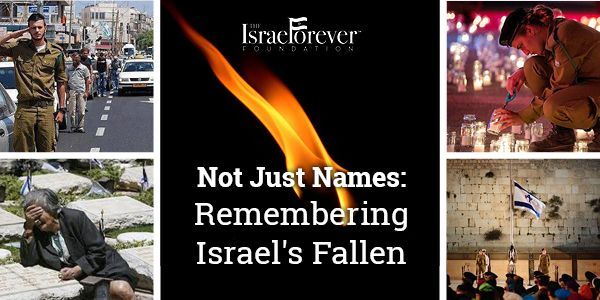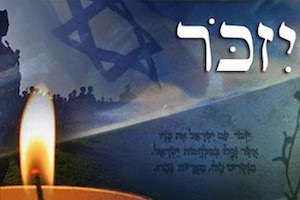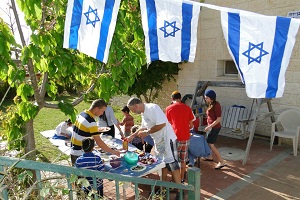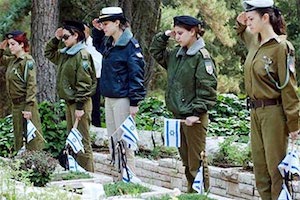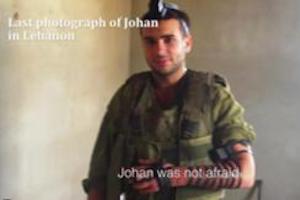The Club No One Wants To Belong To
By Pnina Weiss

Staff Sgt. Ari Weiss z"l
Copyright © Pnina Weiss
Growing up, I was always part of one club or another. Computer club, chess club, student council and other various organizations made me feel connected and “one of the gang.” More than the activities of the club itself, it was the friendships I made and the camaraderie of the group which kept me active.
But then, in 2002, I entered a club I never, ever wanted to be a part of, or imagined I would ever join. It was the club of the Bereaved Brothers and Sisters.
From the moment we got the dreaded knock on the door, informing my family that my younger brother Ari, a sergeant in the Palchan brigade’s anti-terror unit, had been killed in battle, I suddenly found that I “belonged” to a whole new crowd, one from which I can never escape.
Our members are spread far and wide, and they come from every sector of society: rich and poor, Sephardi and Ashkenazi, immigrant and Sabra. Generally, they go unnoticed, blending into the general populace. But other members of the club can spot them.
They are the ones standing off to the side, shedding a tear at a friend’s wedding, hoping no one will notice them as they think of their sibling who will never marry or bring children into the world.
They are the ones choking up while lighting Shabbat candles, recalling the good times when the entire family sat around the Shabbat table. They are the ones who stop in their tracks and stare at the yahrtzeit candles while shopping at the supermarket.
I made aliya with my family when I was just 14. I had never been to Israel before and certainly did not take well to the adjustment. I was even featured in an article in The Jerusalem Post shortly after I arrived here – “Against Their Will” – describing the hardships I encountered and the animosity I felt toward my parents for dragging me here. I resented my new country, and dreaded the task of acclimating to my new life in Israel. Even after I finished my National Service, I applied to college in the USA, thinking that perhaps my life would be better if I just went back to the “old country.”
But, for whatever reason, I decided to stay in Israel, and I grew to love this country.

Copyright © Pnina Weiss
I mean, where else do the buses say “Shana Tova” around the holidays? Where else does an entire nation stand at attention to memorialize the fallen? Eventually, I understood that this wasn’t just the proverbial, generic “Land of the Jews”; this had now become my land.
I sensed a deeper meaning to life in this place as I saw history being written right in front of my eyes. My priorities in life changed, and I no longer measured success by the amount of money one makes, but rather by our contribution towards making this world a better place than we found it. I discovered that here I was not just a solitary person, as important as that may be, but was now one part of a significant whole.
And then Ari, my beloved brother, fell.
To be honest, I was somewhat tainted by having lost a brother. I mean, how could God do this to my parents, who after so many years had finally fulfilled their Zionist dream of moving to Israel? Why did my eight-year-old sister now have to remain inside the synagogue saying Yizkor while all of her friends were outside, playing with the other kids? I didn’t know the answer to all these questions – I still don’t – but this event, and all that flowed from it, has deeply cemented me to this country.
Many people have questioned why I choose to remain here, after something so terrible and tragic has happened, but I guarantee you that none of those who ask live here.
As sad as it may be, this is part of life in Israel. This is part of the sacrifice we make to live free in our own country, and sacrifice has been the way of the Jews since the beginning of our history. People living in Israel get this, since here we are one family and we all feel the pain.
Please don’t get me wrong; the Jews of the Diaspora are wonderful, and they have given me and my family tremendous support over the past decade. But when it comes down to it, the people I really want holding my hand are the ones sitting right next to me.

This is the last photo of Ari Weiss, taken 10 minutes before he was killed. He and his friend Shai (pictured) went out for guard duty. Shai was shot first and remains paralyzed from the waist down. Ari was shot and killed instantly.
Copyright © Pnina Weiss
They are the ones whose families rush into bomb shelters in the middle of the night, and they are the ones who listen to somber music on Yom Hazikaron to remind them of those who are no longer with us. Between us, we communicate through an unspoken language. We just look at each other, and we know what the other is thinking and feeling.
Every Israeli has a compelling story well worth listening to. Not all of them have perfectly happy endings, but, when you put them all together, they add up to what makes Israel the amazing nation that it is. Life isn’t always meant to be easy, and – more often than not – the hardships you go through make you appreciate what is really important and what must never be taken for granted.
Although I still get teary-eyed when I see chayalim (soldiers) step off the bus on Fridays before Shabbat, and still find it difficult to make that switch from Yom Hazikaron to Yom Ha’atzmaut, I cannot imagine my home being anywhere else but here.
I just hope and pray that the dreaded club I joined all those years ago will soon be closed to new members.
Read the original article here.
Yom HaZikaron affects each one of us in a unique way - what emotions does it evoke for you?
